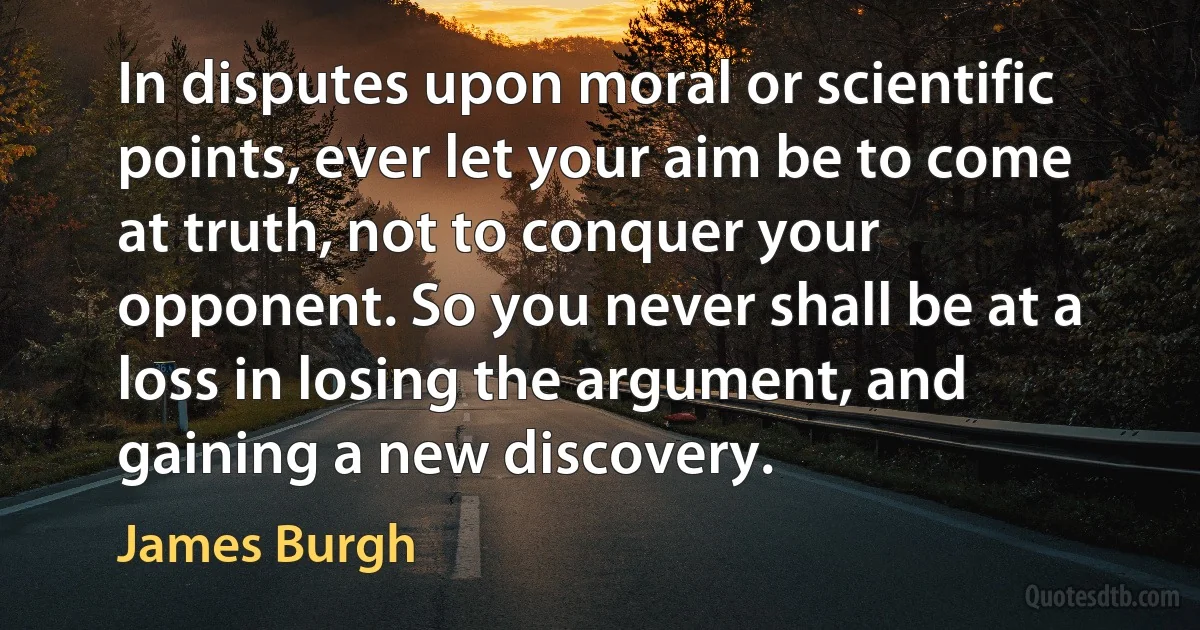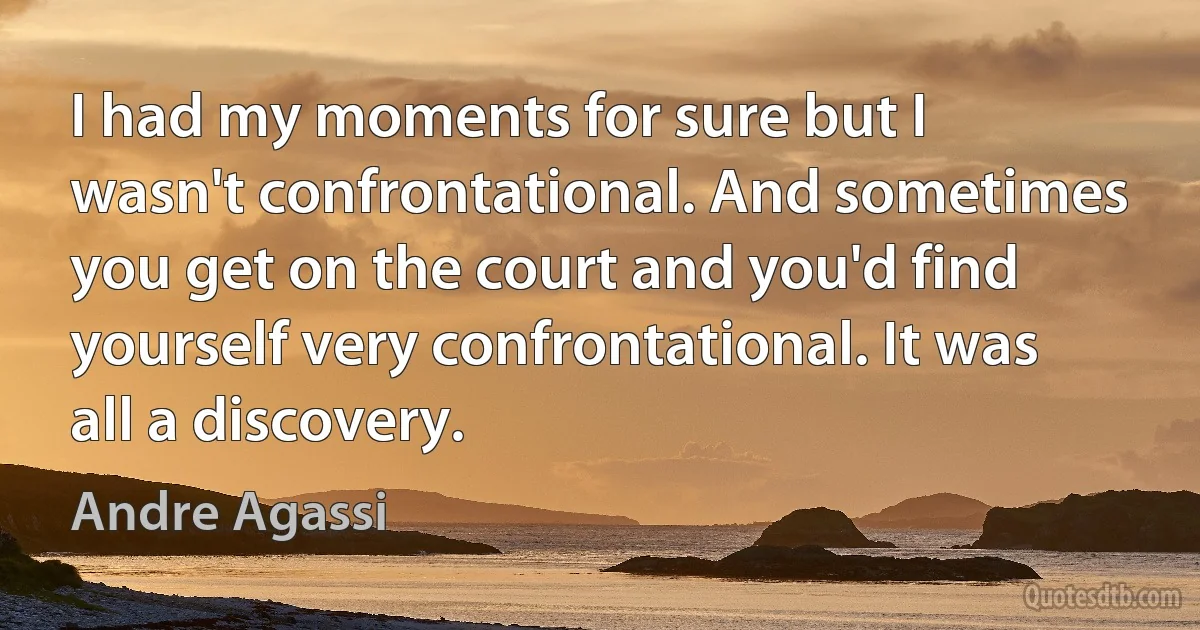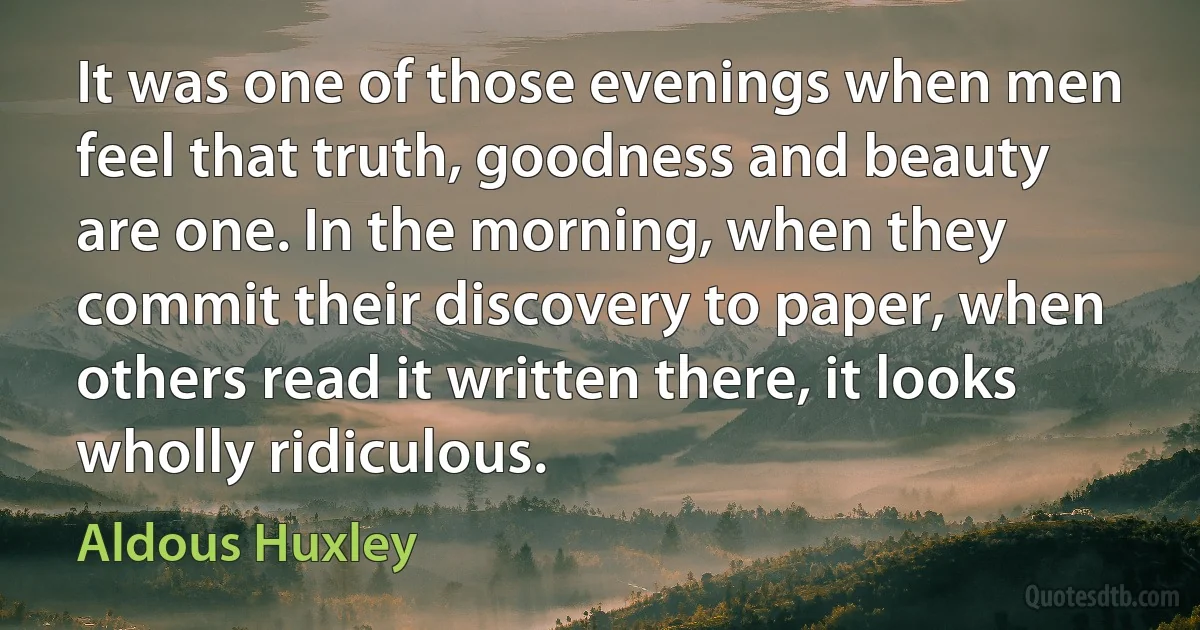Discovery Quotes - page 17
The history of the apple is too absurd. Whether the apple fell or not, how can any one believe that such a discovery could in that way be accelerated or retarded? Undoubtedly, the occurrence was something of this sort. There comes to Newton a stupid, importunate man, who asks him how he hit upon his great discovery. When Newton had convinced himself what a noodle he had to do with, and wanted to get rid of the man, he told him that an apple fell on his nose; and this made the matter quite clear to the man, and he went away satisfied.

Carl Friedrich Gauss
Transformers is so belabored that it makes Pirates of the Caribbean: At World's End seem like a masterpiece of pacing. It makes that "classic" midsummer alien invasion movie, Independence Day, seem like a template for inventive plotting and solid character development. Even by Michael Bay standards, this movie is vapid. Yes, there are plenty of explosions, but those are a dime-a-dozen these days; even Discovery Channel's Mythbusters has them. Transformers isn't clean, big-budget fun; it's clean, big-budget tedium. For Transformers fans, I suppose this is a dream motion picture. For everyone else, it's a nightmare.

James Berardinelli
The only true voyage of discovery, the only fountain of Eternal Youth, would be not to visit strange lands but to possess other eyes, to behold the universe through the eyes of another, of a hundred others, to behold the hundred universes that each of them beholds, that each of them is.

Marcel Proust
Discovery in mathematics is not a matter of logic. It is rather the result of mysterious powers which no one understands, and in which unconscious recognition of beauty must play an important part. Out of an infinity of designs, a mathematician chooses one pattern for beauty's sake and pulls it down to earth.

Marston Morse
When from a long-distant past nothing subsists, after the people are dead, after the things are broken and scattered, still, alone, more fragile, but with more vitality, more unsubstantial, more persistent, more faithful, the smell and taste of things remain poised a long time, like souls, ready to remind us, waiting and hoping for their moment, amid the ruins of all the rest; and bear unfaltering, in the tiny and almost impalpable drop of their essence, the vast structure of recollection.And once again I had recognized the taste of the crumb of madeleine soaked in her decoction of lime-flowers which my aunt used to give me (although I did not yet know and must long postpone the discovery of why this memory made me so happy), immediately the old gray house upon the street, where her room was, rose up like the scenery of a theater.

Marcel Proust
Our best corporate citizens are also our most creative... Sixty years ago, when the Russians beat us into space, we didn't deny Sputnik was up there. We didn't argue about the science, or shrink our research and development budget. We built a space program almost overnight, and twelve years later, we were walking on the moon. That spirit of discovery is in our DNA. We're Thomas Edison and the Wright Brothers and George Washington Carver. We're Grace Hopper and Katherine Johnson and Sally Ride. We're every immigrant and entrepreneur from Boston to Austin to Silicon Valley racing to shape a better world. And over the past seven years, we've nurtured that spirit.

Barack Obama
The highest and ultimate personality values are declared to be independent of contrasts like rich and poor, healthy and sick, etc. The world had become accustomed to considering the social hierarchy, based on status, wealth, vital strength, and power, as an exact image of the ultimate values of morality and personality. The only way to disclose the discovery of anew and higher sphere of being and life, of the "kingdom of God” whose order is independent of that worldly and vital hierarchy, was to stress the vanity of the old values in this higher order.

Max Scheler
If it is the drive of our time, after freedom of thought is won, to pursue it to that perfection through which it changes to freedom of the will in order to realize the latter as the principle of a new era, then the final goal of education can no longer be knowledge, but the will born out of knowledge, and the spoken expression of that for which it has to strive is: the personal or free man. Truth consists in nothing other than man's revelation of himself, and thereto belongs the discovery of himself, the liberation from all that is alien, the uttermost abstraction or release from all authority, the re-won naturalness. Such thoroughly true men are not supplied by school; if they are there, they are there in spite of school.

Max Stirner
Today we know that on the sub-atomic level the fate of an electron or a whole atom is not determined by its past. But this discovery has not led to any basically new departure in the philosophy of nature, only to a state of bewildered embarrassment, a further retreat of physics into a language of even more abstract symbolism. Yet if causality has broken down and events are not rigidly governed by the pushes and pressures of the past, may they not be influenced in some manner by the "pull" of the future-which is a manner of saying that "purpose" may be a concrete physical factor in the evolution of the universe, both on the organic and unorganic levels. In the relativistic cosmos, gravitation is a result of the curvature and creases in space which continually tend to straighten themselves out-which, as Whittaker remarked, "is a statement so completely teleological that it certainly would have delighted the hearts of the schoolmen."

Arthur Koestler
The ideas survived and they can now be said to be in agreement with reason. They survived because prejudice, passion, conceit, errors, sheer pigheadedness, in short because all the elements that characterize the context of discovery, opposed the dictates of reason and because these irrational elements were permitted to have their way. To express it differently: Copernicanism and other "rational" views exist today only because reason was overruled at some time in their past. (The opposite is also true: witchcraft and other "irrational" views had ceased to be influential only because reason was overruled at some time in their past.)

Paul Karl Feyerabend
We are all inclined to accept conventional forms or colours as the only correct ones. Children sometimes think that stars must be star-shaped, though naturally they are not. The people who insist that in a picture the sky must be blue, and the grass green, are not very different from these children. They get indignant if they see other colours in a picture, but if we try to forget all we have heard about green grass and blue skies, and look at the world as if we had just arrived from another planet on a voyage of discovery and were seeing it for the first time, we may find that things are apt to have the most surprising colours.

Ernst Gombrich
Many times I had spoken about "mental bipolarity" and proved that our affects are bipolar. Desire and disgust, love and hate, will-to-power and will-to-submission, are composed of negative and positive parts like the current of electricity. My contention was that any human affect has its own counterpart. Later Bleuler described this fact as "ambivalence," a term that was accepted by everybody, whereas previously they had laughed at my discovery, and given me the nickname "Stekel with his Bipolarity."

Wilhelm Stekel
In regard to man's final end, all the higher religions are in complete agreement. The purpose of human life is the discovery of Truth, the unitive knowledge of the Godhead. The degree to which this unitive knowledge is achieved here on earth determines the degree to which it will be enjoyed in the posthumous state. Contemplation of truth is the end, action the means.

Aldous Huxley
I am going to tell you something you must not tell to any human being. We have split the atom. The report of the great experiment has just come in. A bomb was let off in some wild spot in New Mexico. It was only a thirteen-pound bomb, but it made a crater half a mile across. People ten miles away lay with their feet towards the bomb; when it went off they rolled over and tried to look at the sky. But even with the darkest glasses it was impossible. It was the middle of the night, but it was as if seven suns had lit the earth; two hundred miles away the light could be seen. The bomb sent up smoke into the stratosphere...It is the Second Coming. The secret has been wrested from nature...Fire was the first discovery; this is the second.

Winston Churchill
Mathematics have a triple aim. They must furnish an instrument for the study of nature. But that is not all: they have a philosophic aim and, I dare maintain, an esthetic aim. They must aid the philosopher to fathom the notions of number, of space, of time. And above all, their adepts find therein delights analogous to those given by painting and music. They admire the delicate harmony of numbers and forms; they marvel when a new discovery opens to them an unexpected perspective; and has not the joy they thus feel the esthetic character, even though the senses take no part therein? Only a privileged few are called to enjoy it fully, it is true, but is not this the case for all the noblest arts?
This is why I do not hesitate to say that mathematics deserve to be cultivated for their own sake, and the theories inapplicable to physics as well as the others. Even if the physical aim and the esthetic aim were not united, we ought not to sacrifice either.

Henri Poincaré
In science by a fiction as remarkable as any to be found in law, what once been published even though it be in the Russian language, is spoken of as known, and it is too often forgotten that the rediscovery in the library may be a more difficult and uncertain process than the first discovery in the laboratory.

John Strutt, 3rd Baron Rayleigh



